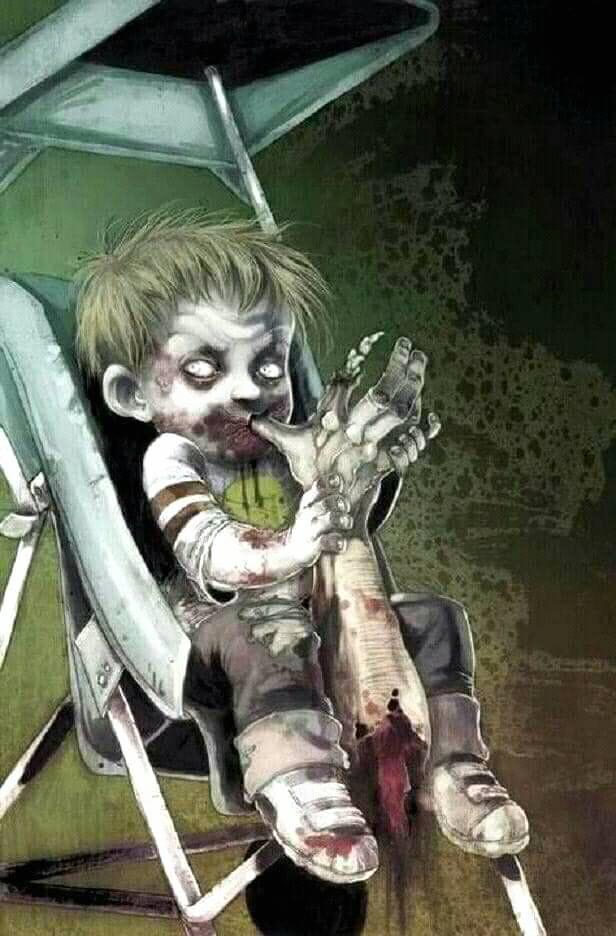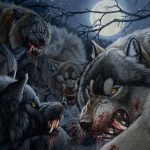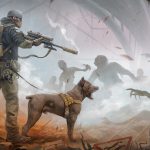Solitary zombies are very rare. Zombies tend to gather in groups called packs or hordes. Zombie packs are typically much larger than vampire packs.

Using their strong sense of smell to lead the way, newly transformed zombies will instinctively gravitate to other zombies. Within days of the onset of a plague, packs made up of dozens of zombies will have formed.
Zombie researchers believe that the pack fulfills some primal need for community and connection. If number is power, it can also be disadvantageous for zombies to pack together since it makes them more conspicuous, as well as making it more difficult for all to get a share.
Within the pack, zombies will assemble themselves into approximations of family units, with children, parents and grandparents huddling together. A group of stronger, quicker zombies will take the lead in hunting and will eat first. The zombie leader or alpha is called Big Daddy’ in Romero’s Land of the Dead or Zeus in Zack Snyder’s Army of the Dead.
The cooperation zombies display in hunting generally vanishes when they start feeding. Many zombies receive serious wounds from other zombies during a feeding frenzy. Hungry zombies leave nothing but the bones, which they break open to get to the marrow. Well fed zombies will stick to the nutritious brain and bone marrow, leaving the rest of the viscera for the weaker members of the pack. Only in times when the food supply is plentiful will a zombie share.
Zombies tend to gravitate around the places of their former selves. Whether they are drawn here by nostalgia or just say ambushed in wait for human food is something that needs to be discussed. Actually, it is very rare to find zombies in countryside areas, they prefer to stick to town centers and larger cities.








